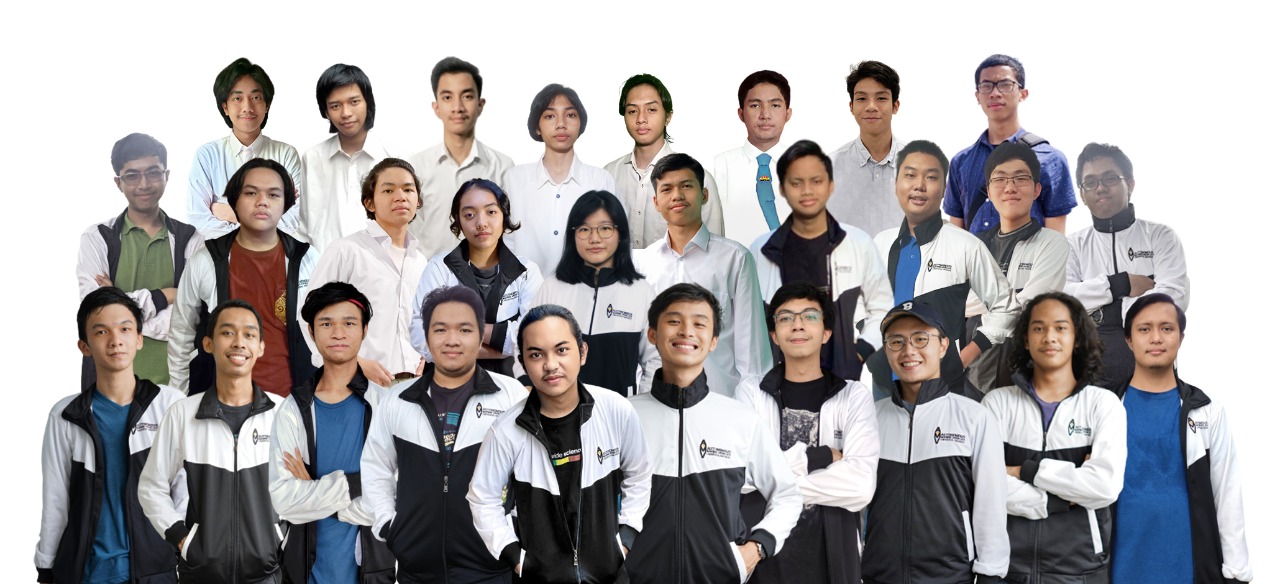Universitas Indonesia (UI) students who are members of the UI Autonomous Marine Vehicle (AMV) Team again presented a proud achievement from the international competition event, Smartphone Control Boat Competition 2021. The UI AMV team sent two teams to this competition and both won 1st place (Team Makara Phantom) and 2nd Place (Autonomous Marine Vehicle Team). The two teams, consisting of 28 students from the Faculty of Engineering (FTUI), Faculty of Computer Science (FASILKOM UI), and the Faculty of Mathematics and Natural Sciences (FMIPA UI), beat 11 other teams from various Indonesian and Malaysian universities.
Smartphone Control Boat Competition 2021 is an international competition organized by Technomarine Club UTM, Universiti Teknologi Malaysia in November 2021–March 2022. This competition focuses on student exposure about the basic concepts of Internet of Things (IoT) & Electronic DIY projects. The jury’s assessment is based on design, performance, technical and presentation. Participants in this competition go through several stages of the competition, starting from briefing and tutorial sessions, buying their own electronic devices online, making a functional boat model that is controlled by a smartphone and competing with other teams based on performance, and the last is an assessment by lecturers and professional authorities in the maritime field. .
“The advantages of the prototype ship design made by the Makara Phantom Team are the strong rigidity of the ship and the use of an energy efficient and inexpensive power system. To regulate the ship’s power, we use a technology called Pulse Width Modulation (PWM). PWM is a method of reducing the average power sent by an electrical signal by cutting it off effectively. By using PWM, the boat’s motor power can be set from zero to one hundred percent. So, our ship can maneuver like a tank and can avoid other ships well,” said Felix Yaman Kusuma (Electrical Engineering FTUI ’20), a member of the Makara Phantom Team.
Meanwhile, the ship designed by the AMV UI team uses ESP8266 as the main control system. This program is a microcontroller that can be programmed easily as desired. The main tool used to program this control system is the Arduino IDE, a powerful application that is compatible with many microcontrollers. The preferred programming for interacting with the chip is C++. C++ was chosen as the programming language, because apart from being the default IDE language, C++ is also light and simple. This feature makes it optimal for running low-resource ship engines like the ESP8266, and ideal for the needs of the AMV UI team.
“Our team uses ESP8266, Wifi, and Blynk for ship programming. These three systems are programs with easy-to-use functions and allow the microcontroller to communicate with mobile phones as ship control. Especially for the graphical user interface (GUI), the Blynk application that we use as the main interface, can be downloaded directly to any Android or iOS device. By using Blynk, the connection between the cellphone and the microcontroller can run smoothly with reliable network strength,” said Rizky Rivaldi Ramadhan, a member of the AMV UI Team.
The Dean of FTUI, Prof. Dr. Heri Hermansyah, ST., M.Eng., IPU appreciates the work and achievements of UI students, “Universitas Indonesia and FTUI always support students to develop their interests and talents through competitions at home and abroad. Hopefully the ship innovation designs from the students from the AMV UI Team in the future can be implemented in the national shipping industry. Especially a more user-friendly control system via smartphones so that ship control does not require external or other remote controls.”
The AMV UI team is a robotics competition team that focuses on making unmanned maritime robots. AMV UI team members who participated in this competition were Vincent Brendli (Naval Engineering ’19), Althaf Nafi Anwar (Computer Engineering ’21), Evans Hebert (Computer Engineering ’19), Zaki Ananda (Computer Engineering ’21), Glene Felix Simamora (Actuarial ’20), Rahmat Bryan Naufal (Fac. of Computer Science ’21), Daffa Nafis (Naval Engineering ’21), Bhamakerti M. A (Mechanical Engineering ’21), Hafizhuddin Rasyid (Electrical Engineering ’21), Virdian Harun Prayoga (Fac. of Computer Science ’20), Valerie Olive Suryono (Electrical Engineering ’20), Fauzan Valdera (Electrical Engineering ’19), Rizky Rivaldi Ramadhan (Electrical Engineering ’20) Salman Hadi (Industrial Engineering ’21), Steffi Natalie (Electrical Engineering ’21), Umar Maulana (Electrical Engineering ’21), Reynard Henderson (Electrical Engineering ’19), Muhammad Hurricane (Mechanical Engineering ’19), Gemilang Bagas Ramadhani (Computer Engineering ’20), Prajna Prasetya (Fac. of Computer Science ’19), Muhammad Gavin Dirgantara (Electrical Engineering ’20), Felix Yaman Kusuma (Electrical Engineering ’20), Adli Aulia Fattah Harahap (Electrical Engineering ’19), Abu Bakar Aakif Muhammad (Electrical Engineering ’20), Ester Vinia (Biomedical Engineering ’19), Mahardhika Adhi Prabowo (Electrical Engineering ’20), Christofer (Naval Engineering ’19), and M. Akbar Attalah (Electrical Engineering ’19).
***
Public Communication Bureau
Faculty of Engineering, Universitas Indonesia

